Eyeglass Case Manufacturing Machinery
Struggling with slow eyeglass case production? Old machines causing headaches and lost profits? Discover how modern machinery can transform your output and business.
Eyeglass case manufacturing machinery includes automated systems for cutting, forming, lining, and finishing cases. These machines boost speed, precision, and consistency, helping businesses like yours meet demand and improve quality.
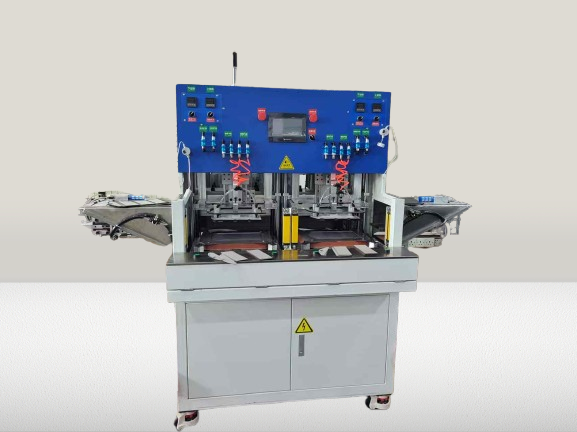
I’ve seen firsthand how the right equipment can make all the difference. It’s not just about speed; it’s about building a sustainable and profitable operation. So, let’s explore what specific machines are involved and how they can benefit your business.
What Key Machines Make Up an Eyeglass Case Production Line?
Unsure what machines you actually need? Manual processes slowing you down? Learn about the essential equipment that forms a complete eyeglass case production line.
A typical line includes material cutting machines, case forming machines, gluing systems, lining applicators, and sometimes printing or embossing units. Each plays a vital role in creating a finished, high-quality eyeglass case.

When I first looked into setting up an eyeglass case production, the variety of machines was a bit overwhelming. But breaking it down helps. Let’s look at the core components.
Material Preparation and Cutting
This is where it all starts.
- Die-Cutting Machines: These are crucial for accurately cutting the outer material (like leather, fabric, or synthetic materials) and the inner lining. Precision here means less waste and better-fitting cases. I remember visiting a factory where they upgraded their old manual cutters to an automated die-cutter. The difference in speed and accuracy was night and day.
- Board Slitters/Cutters: For hard cases, the rigid board material needs to be cut to size. Modern slitters can handle various thicknesses and provide clean edges.
Case Forming and Assembly
This is where the case takes shape.
- Case Forming Machines: These machines take the cut materials and mold them into the desired case shape. This could involve heat, pressure, or specialized molds. Some advanced machines can handle various shapes and sizes with quick changeovers.
- Gluing Systems: Applying adhesive evenly is key for a durable case. Automated gluing systems ensure consistent application, whether it’s for the main body or for attaching the lining. I’ve seen messy results from manual gluing, leading to rejects.
- Lining Insertion Machines: Smoothly inserting and adhering the inner lining is important for protecting the eyeglasses. Automated machines do this much faster and neater than by hand.
Finishing Touches
These machines add the final quality.
- Hinge/Closure Attaching Machines: For cases with hinges or specific closure mechanisms (like magnetic snaps), specialized machines ensure they are attached securely and accurately.
- Optional: Printing/Embossing Machines: If you offer branded or decorated cases, these machines add logos or patterns. This can really add value.
Investing in a well-integrated line of these machines is what truly boosts productivity. It’s not just about individual machines, but how they work together. My company, Kylin Machine, specializes in providing these kinds of integrated solutions, drawing from our experience since 2003 in serving the packaging and printing industries.
How Does Automation in Machinery Boost Eyeglass Case Quality and Efficiency?
Worried about inconsistent quality or slow output? Manual labor costs rising? See how automation in machinery can solve these problems and improve your bottom line.
Automation reduces human error, ensuring consistent dimensions, glue application, and overall finish. It also speeds up production cycles, lowers labor costs, and allows for more complex designs with greater precision.
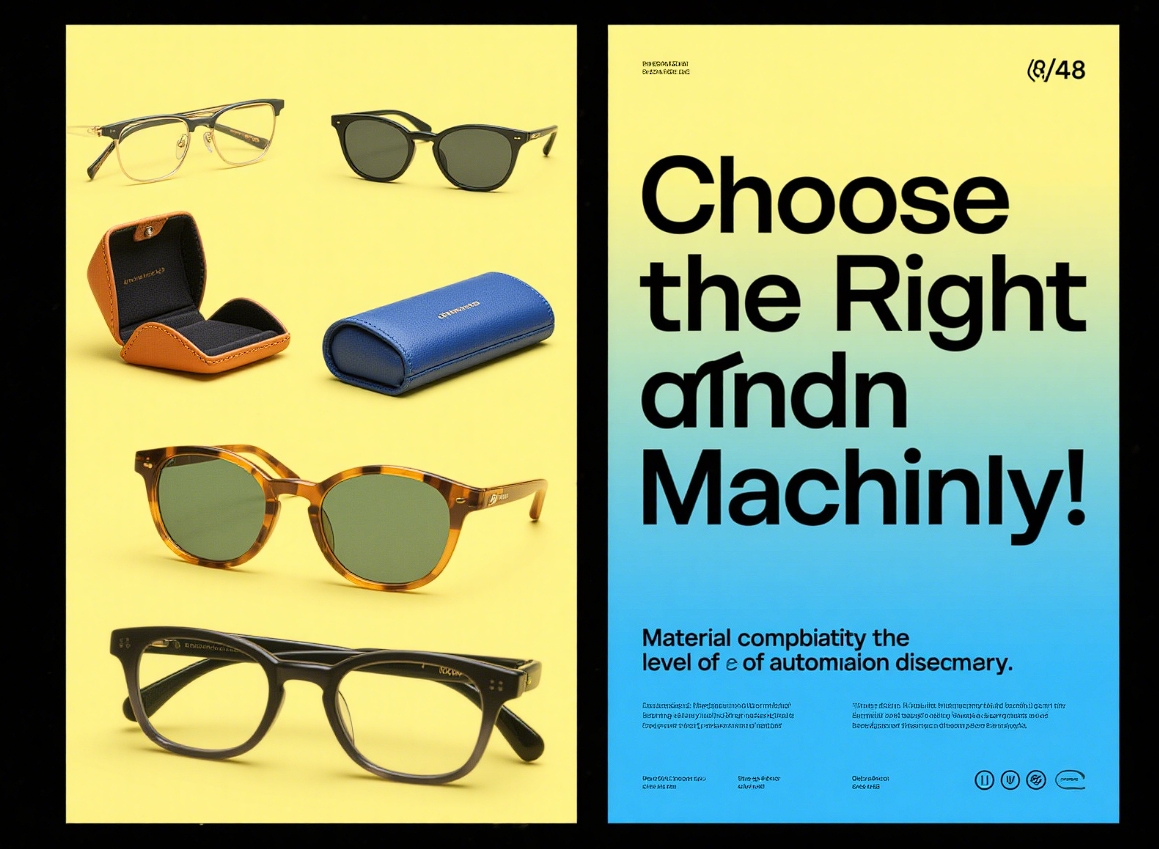
I often talk to business owners who are hesitant about automation, thinking it’s too complex or expensive. But for eyeglass case manufacturing, the benefits are too significant to ignore. Let’s break down how automation really helps.
Enhanced Precision and Consistency
Humans, no matter how skilled, can have off days.
- Uniformity: Automated machines perform the same task, the same way, every single time. This means every case meets the exact specifications. Think about cutting material – a machine will cut to the micrometer, consistently. I recall a client in the graphic arts industry who struggled with varying case sizes for a luxury brand until they automated their cutting and forming process with our Kylin machines.
- Reduced Defects: Consistent operations mean fewer mistakes, less material waste, and a lower defect rate. This directly impacts your costs and customer satisfaction, which is vital whether you’re a small workshop or a large packaging group.
Increased Production Speed
Time is money, especially in manufacturing.
- Faster Cycle Times: Machines can work faster and longer than human operators without fatigue. This means more cases produced per hour, per day, helping you meet tight deadlines from your clients.
- Continuous Operation: Some automated lines can run with minimal supervision, even for extended periods, maximizing output. This is a huge advantage for businesses looking to scale up.
Cost Reduction
While the initial investment can be a factor, the long-term savings are substantial.
- Lower Labor Costs: Fewer operators are needed to manage an automated line. This doesn’t always mean job losses; often, it means re-skilling staff for more valuable tasks like quality control or machine maintenance. We’ve seen this with many of our 120+ skilled workers at Kylin Machine.
- Material Savings: Precision cutting and assembly reduce waste. I’ve seen material savings of up to 10-15% in some automated setups, which is a significant saving for any paper converting business.
Improved Worker Safety
Some manufacturing processes can be repetitive or involve potentially hazardous operations.
- Reduced Repetitive Strain: Automation takes over monotonous tasks, reducing the risk of repetitive strain injuries for workers.
- Safer Operations: Machines can handle tasks that might be risky for humans, like working with hot adhesives or sharp cutting tools.
When I founded Kylin Packaging Machinery Factory in 2003, focusing on high-technology solutions like Robotic Spotters was a key decision. We saw the trend towards automation and knew it was the future for efficient and high-quality production in industries like rigid box making, which shares many principles with eyeglass case manufacturing.
What Should I Look for When Choosing Eyeglass Case Machinery for My Business?
Ready to invest but unsure what to prioritize? Overwhelmed by options? Learn the key factors to consider to make the best machinery choice for your needs.
Consider production volume, case types, material compatibility, level of automation desired, budget, and the supplier’s after-sales support and reputation. A thorough evaluation ensures a smart investment.
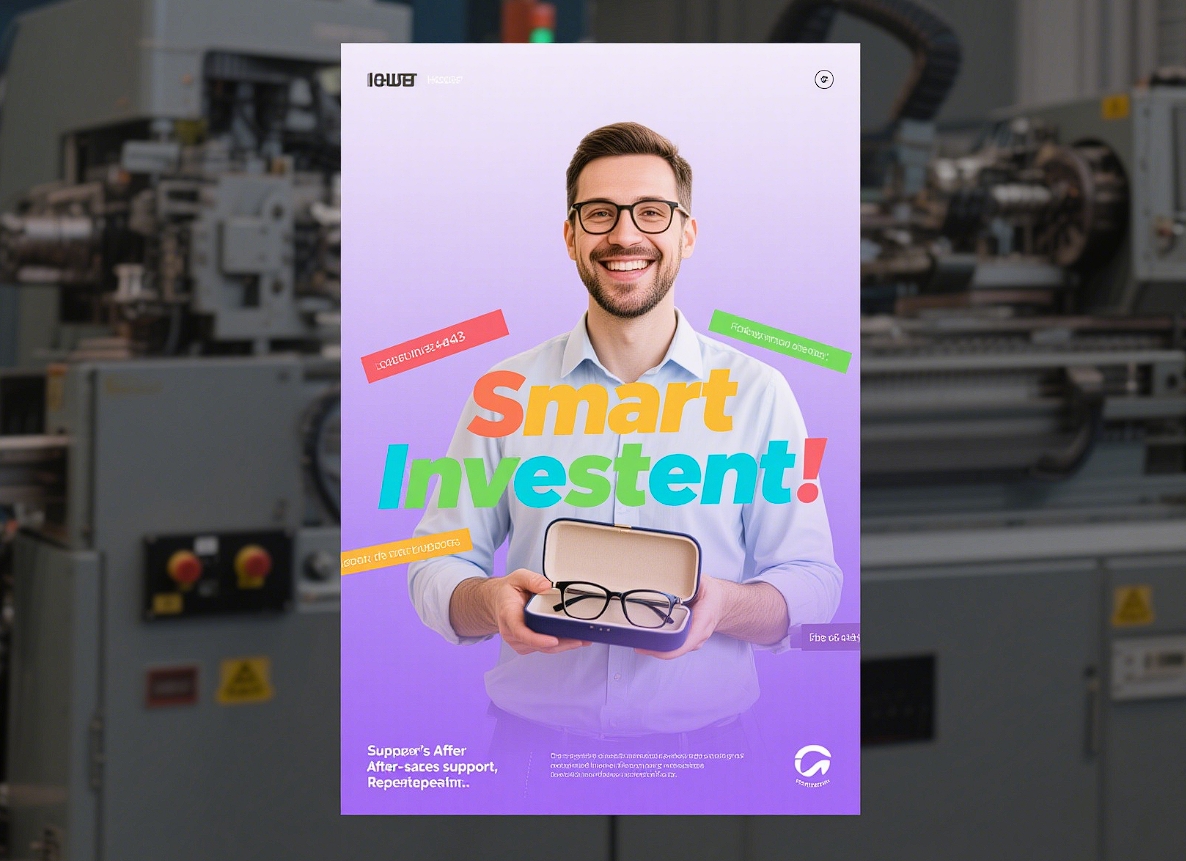
Choosing the right machinery is a big decision. It’s an investment that will impact your business for years. From my experience helping over 2,500 users in more than 20 countries with Kylin Machinery Limited, here are some critical things I always advise them to think about.
Key Considerations for Machinery Selection
| Factor | Description | Why It’s Important for Eyeglass Cases |
|---|---|---|
| Production Volume | How many cases do you need to produce daily/monthly? | Determines the required speed and capacity of the machines. Don’t over or under-invest. |
| Case Types & Complexity | Will you make hard cases, soft cases, clamshells, different sizes, or use intricate designs? | Different machines are suited for different types. Versatility might be key if your product line varies. |
| Material Compatibility | What materials will you use (leather, PU, fabric, metal, plastic)? | Ensure the machinery can handle your chosen materials effectively without damage or excessive wear. |
| Level of Automation | Do you need semi-automatic or fully automatic machines? | Balances investment cost with labor savings and output consistency. Addresses pain points of both small and large businesses. |
| Footprint & Space | How much factory space do you have available in your facility (like our 5,000 sq meter factory in Dongguan)? | Machinery size can be a constraint. Plan your layout. |
| Budget | What is your total budget for the machinery, including installation and training? | Be realistic. Consider Total Cost of Ownership (TCO), not just the upfront price. Small businesses often face procurement dilemmas here. |
| Supplier Reputation | Is the supplier known for quality, reliability, and good service? (e.g., Kylin Machine’s global presence) | A reliable partner is crucial. Look for testimonials and case studies. |
| After-Sales Support | What kind of technical support, spare parts availability, and maintenance services are offered? | Downtime is costly. Good support, like having distributors worldwide (Middle East, India, UK, USA etc.), is essential to address this pain point. |
| Ease of Use & Training | How easy is the machinery to operate and maintain? Is training provided? | Reduces learning curve and ensures your team can operate the machines efficiently. |
I always tell my customers, don’t just look at the price tag. Think about the long-term value. A slightly more expensive machine from a reputable supplier with excellent support, like Kylin Machine (www.kylinmachines.com), can save you a lot of money and headaches down the road compared to a cheaper, less reliable option. We’ve built our business on providing not just advanced machines and technology, but also service, backed by our powerful R&D team and strict QC management. This is how we help our customers in the packaging and printing business fields overcome their challenges with equipment performance and quality control.
Conclusion
Investing in the right eyeglass case manufacturing machinery boosts quality, efficiency, and profitability. Choose wisely by considering your specific needs and partnering with a reliable supplier like Kylin Machine.


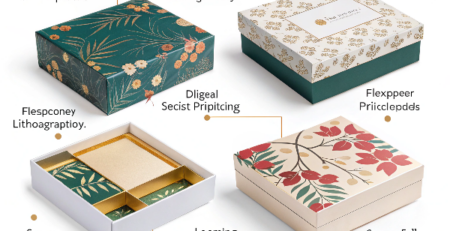
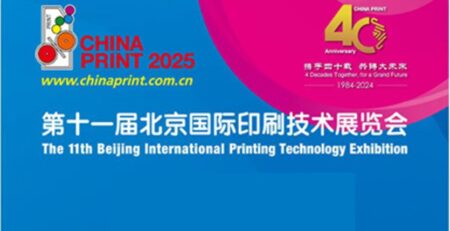
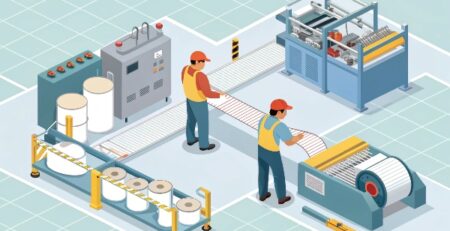
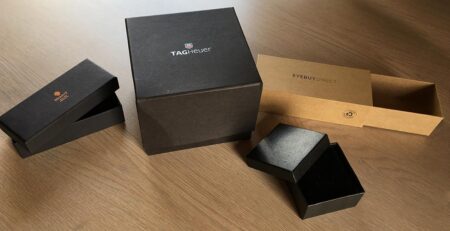
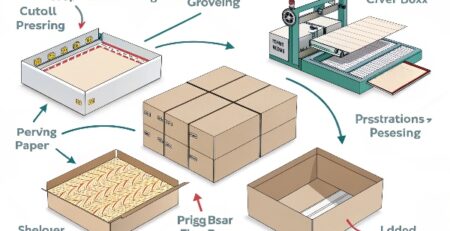
发表回复